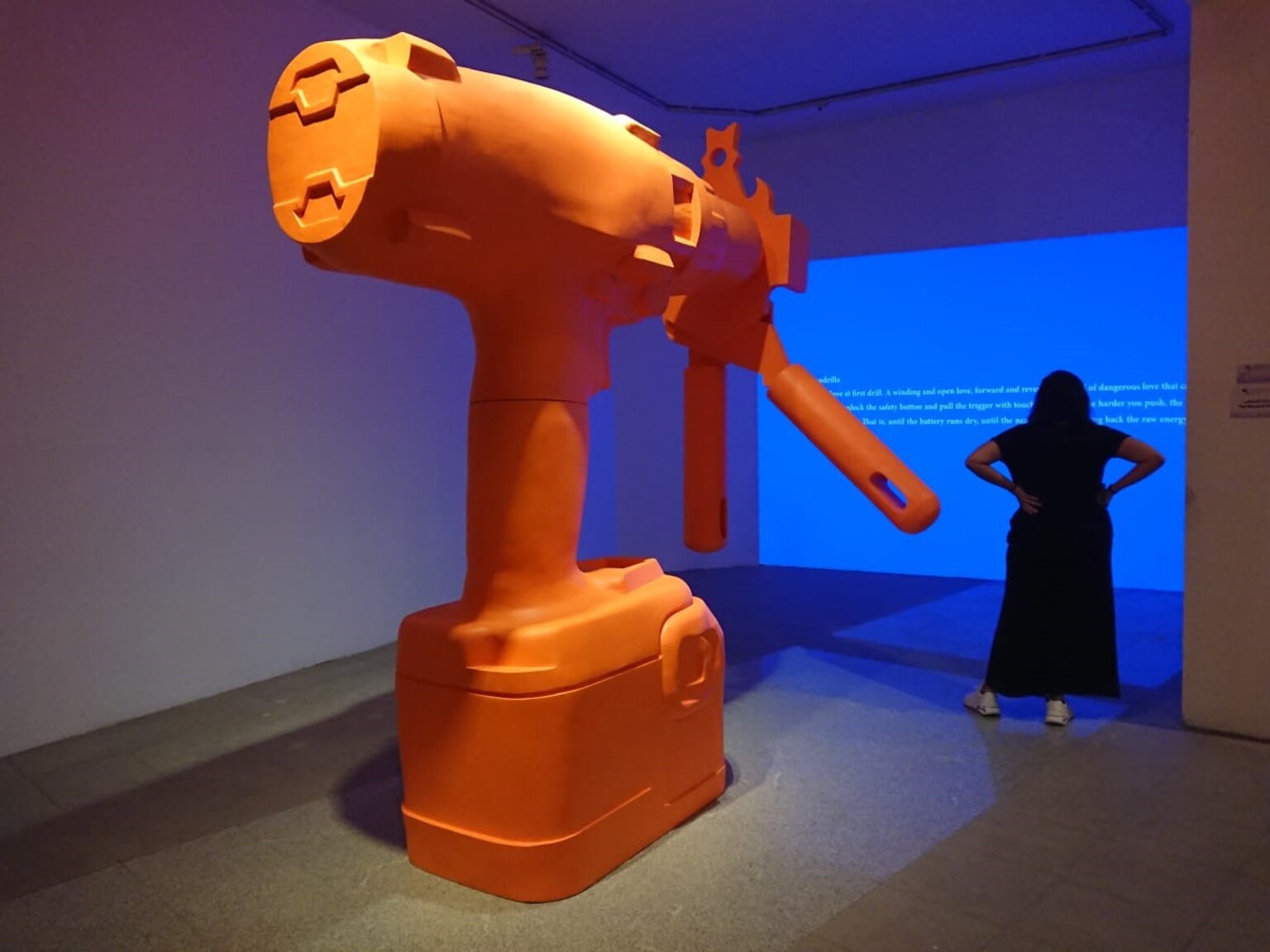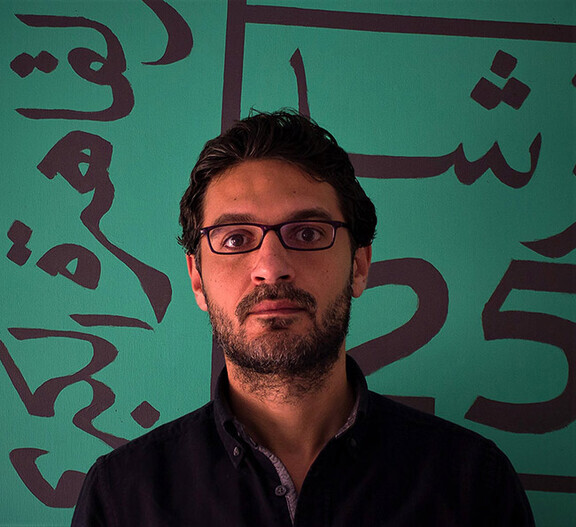
Master student Ahmed Badry wins Cairo Biennale
First year masterstudent at medium and material based art wins a prize at this year Cairo Biennale in competition with 80 artists from 50 countries.
–It was a great pleasure to win a prize in such a competitive Biennale, Badry says on winning the prize which is worth 150.000 LE (approximately 75.000 NKR). The Biennale has six prizes, one Grand prize and 5 named "Biennale prize" Badry won one of the five.
–As a masterstudent at KHiO I have time and space to develop and to expand my research theoretical and technical through the individual tutorials, lectures, and labs.
Badry’s philosophy revolves around the East and its language; a language that contains no alphabet and without vocabulary, a language of non-translatable burdens, clearly manifested in economic practices, in which the society shares the material burdens required by the costly events in a manner that achieves solidarity and sustainability.
Read more on his project Various names for a provisionary that lasts:
On the Orient … and on language
I carry more than a language, one that transcends simple translation.
I carry and express with an intricate and subtle language of the Orient: an inherited non-alphabetical flux of genetic components, collaborative and –certainly dependable-- on some communal “Other”, where all social and economic practices aim at the collective support. Community members carry ---voluntarily-- equal shares of responsibilities, burdens and liabilities to make ends meet every end of day, as well as to provide for the social communal and familial events in a sustainable manner.
Within particular Arab / Oriental communities, such a phenomenon is almost identical, though linguistic representation differs according to cultural specificity: In Egypt is known by the names Gam’eya (hermeneutically describing the collective act of lending in contribution every month to a singular sum of money that each participant receive at the end of one month), Noa’ta (a word describing the collective gifting in money or gold to newlyweds or mothers giving birth). Identical acts are known in Tunis as Alremmo. In Morocco the term is Elzarora (largely translates as “the necessity”), in Iraq as Alwajib (one word that simply translates as “the duty”), and in Syria as Ala’neya (a distorted pronunciation for an Arabic word that denotes “the act of taking care of someone”).
On the Orient … and on language is a project that attempts to uncover the Arab-Oriental thinking models behind taxonomy, etymology and generating names for collective behaviors, mindsets, spaces and objects. The project entails the collaboration of artists and writers to propose a name/term for a hybridized fictitious tool: a can opener connected to an electric drill; the collective contribution aims at finding a description that carries the same necessity that leads to the creation of such hybrids.
Ahmed Badry (b. Egypt, 1979) creates objects, drawings, and installations that propose objects without utility, attempting to manifest usefulness in order to question global systems of production and consumption.
Badry is currently an MFA candidate at the Oslo National Academy of the Arts, Norway. In 2017, he completed the Home Workspace Program at Ashkal Alwan, Lebanon, and a BA in Art Education at Helwan University, Cairo, in 2003. Badry has also participated in residencies at Delfina Foundation, London, and Cité Internationale des Arts, Paris. Solo exhibitions include Portmanteau at Letitia Gallery Beirut, Lebanon (2018) and The Provisionary That Lasts at Medrar, Cairo, Egypt (2014)
